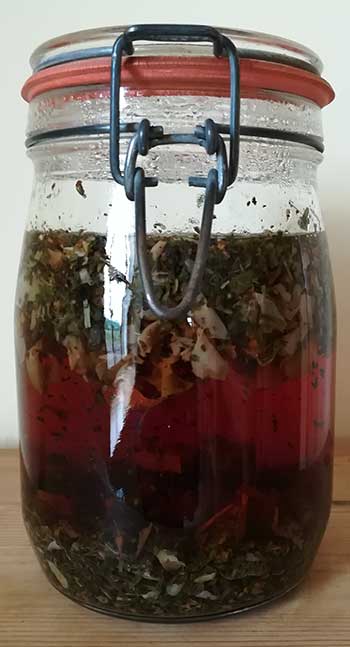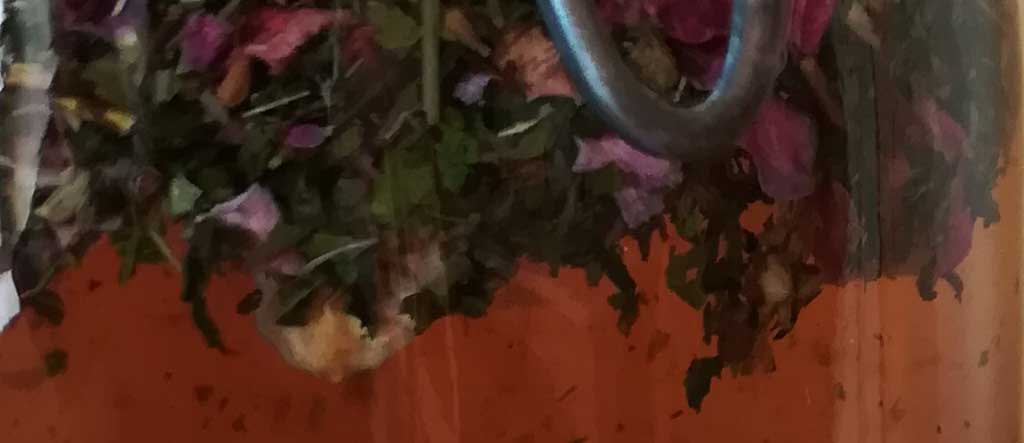Overnight herbal infusions allow for more of the vitamins, minerals and phyto-nutrients of the plant material to be extracted. They offer a very convenient and economical means of extracting the maximum benefit from your herbs.
You will need:
- Cut dried/fresh herbs
- A jar with a lid
- Hot water
Directions:
- Measure out your herbs: generally 1 tsp of dried herb per cup of water.
- When using fresh herbs use double the amount. Cut or chop the herbs to break the plant’s cell walls to allow for more of the water soluble constituents to be extracted.
- Place your herbs in a jar. If you are using seeds grind them a little to release more of their flavour, nutrients and active constituents.
- Cover with hot water and stir.
- Close the lid to prevent the loss of volatile oils in the steam.
- Let sit overnight or for at least 4 to 8 hours. Then strain and drink. I like to strain the infusion into a bottle and sip throughout the day.
As a general rule, use 1 teaspoon of dried herb or 2 teaspoons of fresh herbs per cup of water. You can refrigerate your infusion for up to 48 hours.
The benefits of overnight herbal infusions

Overnight herbal infusions are also known as long infusions, due to the longer steep time. The longer the herbs have to steep the more nutrients, anti-oxidants and medicinal benefits can be extracted. However, it is worth bearing in mind that your infusions are also going to taste stronger, which usually means more bitter.
The taste of bitter is in itself medicinal, it tones up the vagus nerve, which increases the production of feel good hormones such as dopamine and serotonin, improves digestion and strengthens immunity.1 For a balanced brew use less of the stronger tasting herbs and add a hint of something you like, such as mint, aniseed, fennel seeds, chopped ginger, or the rind of orange or lemon. One of my favourite good mood brews is lemon balm, lime flowers an dred rose petals. If I am low on energy then I am reaching for nettles, red raspberry and dandelion leaves. .
Herbs, especially weedy herbs, are experts at drawing minerals and other nutrients from the earth. You can expect your long infusions to yield good quantities of easy to assimilate calcium, magnesium, iron, along with other minerals and trace minerals. They also contain essential fatty acids, vitamins and protein. It is worth remembering that herbs have specific medicinal actions, so unless herbs have been prescribed for you, avoid strong herbs and use mild nourishing herbs such as nettles, oatstraw or chickweed, in overnight infusions.
Related posts:
References:
(1) Charles-Davies D. Bitters: the Revival of a Forgotten Flavor. Available at: https://www.westonaprice.org/health-topics/abcs-of-nutrition/bitters-revival-forgotten-flavor/ (Accessed 18 June 2019)
